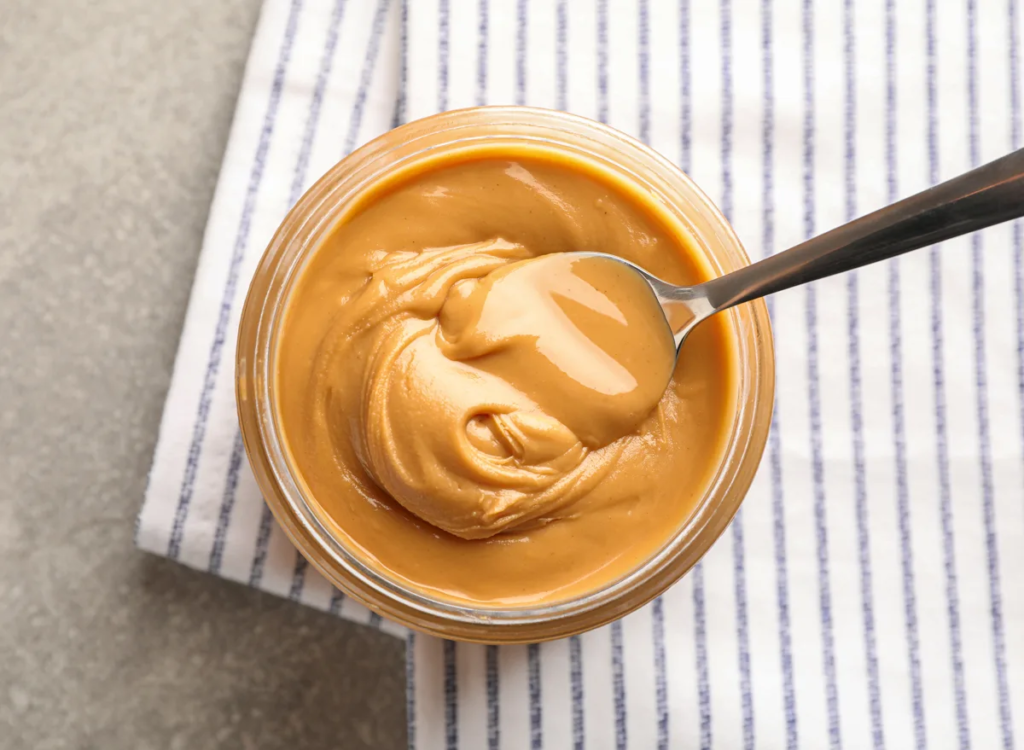
Are you a self-described peanut butter enthusiast or do you merely enjoy the nutty spread? Regardless of where you stand (if you even enjoy the stuff), peanut butter is a favourite of many, therefore we felt it was important to discuss the possible side effects that you can experience from consuming the delicious nut butter. A few of these negative impacts are mentioned below.
5 Side Effects of Peanut Butter
- Acid reflux or Heartburn
Unfortunately, peanut butter can seriously bother your throat and chest. Why? The lower esophageal sphincter (LES), a group of muscles that resembles a flap at the end of your esophagus, is aggravated by peanuts because they contain more fat than certain other nuts. The LES can relax from fatty foods, but not in a healthy way. Your LES is what seals the bottom of your esophagus and shields it from stomach acid, so you need it to remain powerful.

Therefore, stomach acid can enter your esophagus when fatty foods cause your LES to relax, resulting in acid reflux and heartburn symptoms. Ouch! However, if you consume the nut butter in small amounts (about 2 tablespoons each meal) over the week, you might completely avoid this issue.
- Difficulty Swallowing
There’s another reason peanut butter might be making it difficult for your esophagus to do this typical function, besides taking too much of it and feeling like you can’t swallow without a glass of water in your hand. If you don’t know it, you may have a mild allergy to peanuts, which could be the root of your eosinophilic esophagitis (EoE). That is a mouthful, I agree. The Mayo Clinic describes EoE as a persistent immune system condition that can irritate the tissue of the esophagus and make swallowing challenging.

Environmental allergies, asthma, and food allergies are all risk factors for EoE development. Additionally, experiencing frequent acid reflux episodes may promote inflammation in the esophagus.
To find out if you can get tested for food allergies and possibly have an endoscopy, visit a gastroenterologist if you frequently get acid reflux after eating peanut butter and also feel like food is getting stuck in your throat.
- Inflammation
Omega-6 fatty acids, which are found in peanuts, can cause inflammation in the body if consumed in excess. As Sydney Greene, MS, RD previously informed us, “Though safe and even beneficial in moderate amounts, the issue with omega-6s is that most Americans consume more [of it] than omega-3s, which throws off a healthy ratio. When the ratio of omega-6 to omega-3 leans more toward 6, more inflammatory processes can occur in the body.”
However, omega-3 fatty acids work to lower inflammation in the body, so it’s important to eat more of these foods (walnuts, salmon, flaxseed, oysters) if you want to keep your body’s inflammatory response under control. This is important because, if left untreated, chronic inflammation can negatively affect your tissues and organs.
- Improved heart health

However, due to their abundance of these unsaturated fatty acids, peanuts provide a much healthier alternative to foods that are high in saturated fat (think, processed foods and red meat). Oleic acid, which is found in peanut oil in particularly high levels, is thought to support blood pressure and HDL levels, two essential components of heart health. This is particularly true if you replace harmful fats in your diet with peanuts. In comparison to, say, downing a pint of ice cream, choosing a tablespoon of peanut butter and a piece or two of dark chocolate is considerably better.
- Weight Gain
If you consume too much peanut butter consistently, you risk gaining weight since it is calorie-dense. Always keep in mind that two tablespoons of peanut butter only have about 200 calories. As you spread the nut butter on your bread, keep that in mind. Everything is in moderation, as with most foods, right?
Read More:
Brain Hacks to Boost Your Memory and Problem-Solving as You Age